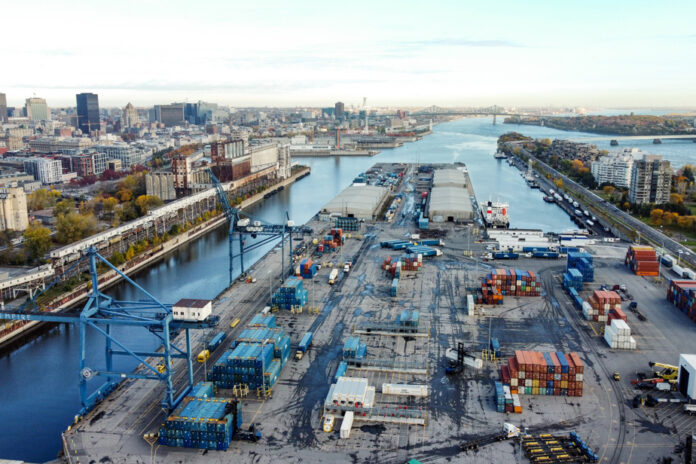(Montreal) Four intelligent marine transportation system projects will share grants totaling $8.7 million to improve the efficiency of cargo handling and the competitiveness of Quebec businesses that use this type of transit, as well as to reduce the amount of greenhouse gases generated by this industry.
More than half of the sum, or $4.8 million, was granted to Société Terminals Montréal Gateway for the realization of its Mercure project, the total bill of which amounts to more than $11.1 million. The company will rely on artificial intelligence to increase the storage capacity of two terminals it operates at the Port of Montreal, in particular by optimizing the movement of cargo containers, an operation currently carried out manually. All of this will improve the traceability of goods and reduce greenhouse gas emissions by 9,200 tons annually.
“The whole thing will have a positive impact on the entire supply chain because we will limit unnecessary movements, we will save time and we will reduce the ecological footprint of these activities at the same time. It’s good for everyone, “said Deputy Premier and Minister of Transport and Sustainable Mobility, Geneviève Guilbault, who came to the Port of Montreal to make this announcement.
An amount of 2.7 million has been allocated to the CSL Group to deploy a collaborative learning model to optimize vessel movements. This 5.4 million system whose delivery is scheduled for December 2024, which will take the form of an artificial intelligence algorithm, will make it possible to estimate in real time the time of arrival of the boats and the quantity of fuel consumed, which will ultimately reduce the environmental footprint of freight transit.
Nearly $480,000 was paid to the Laurentian Pilotage Authority for the continued optimization of its pilotage services via a software application, all in order to better plan the route of commercial and amateur vessels between Les Escousmins and Montreal. Once again, we plan to save fuel and operating costs thanks to artificial intelligence, underlined Minister Guilbault. The total project cost expected for September 2024 is just over $956,000.
The fourth project supported by Avantage Saint-Laurent is an opportunity study carried out for the Société de développement économique du Saint-Laurent (SODES), at a cost of $750,000.
This study, which began last December, will be spread over two years and aims to select the best data sharing platform for SODES partners sitting on the Table québécoise sur le corridor maritime intelligent. It is produced by the firm CGI and will focus, on the one hand, on the best practices observed in the world, and on the other hand, on what exists in Quebec as data.
The importance of maritime transport in the daily life of Quebecers is unsuspected, underlined the director general of SODES, Mathieu Saint-Pierre.
“About 80% of the common goods consumed regularly are delivered here by ship,” he recalled. In all, some 150 million tons of goods are transhipped annually in one or more of the twenty or so ports on the St. Lawrence.
What’s more, 17,000 Quebec companies export by waterway and 30,000 others depend on it to receive their products or raw materials.
“Better coordination of means of transport is essential,” added Mr. Saint-Pierre. By improving the fluidity and speed of transit, we reduce our ecological footprint and our businesses become more competitive. »
Ms. Guilbault announced that a total of six projects have received financial support as part of the implementation of the Advantage Saint-Laurent Smart Economic Corridor. In addition to the four announced on Monday, two others remain to be unveiled.
There are still 6.5 million to be distributed from this envelope, which totals 24.1 million; the Minister was however unable to specify whether it was because projects were refused or because the proposals were submitted in insufficient quantity.
The Avantage Saint-Laurent action plan spans the period from 2021 to 2025.















